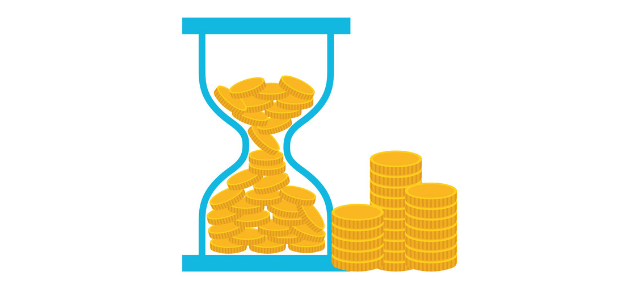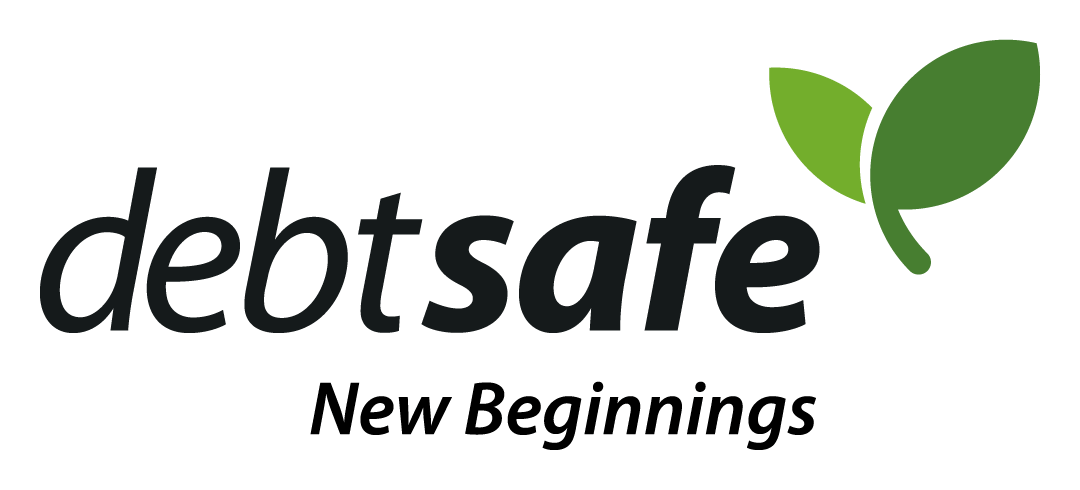Debt Review’s foremost benefit is that it conclusively fixes over-indebtedness, its ultimate achievement is to give you a second chance at building a healthy financial future.
The rest of the benefits of Debt Review is to make sure your journey to financial recovery is safe and sustainable – attentive to keep the ultimate achievement (to fix your debt) at its centre.
Explore the benefits of Debt Review below and learn how partnering with DebtSafe to fix your debt will be worthwhile to you, your loved ones and your financial future.

Latest blog

Time for Debt Review: Let’s Fix Your Debt
Now is the time to consider Debt Review to fix your debt. Debt Review provides a financial lifeline when time is running out to fix your payments in arrears.
FAQ’s
A: It is the employer’s choice on what the exact requirements are for their employees, so we will not be able to say definitively.
However, historically we have seen that in general being under Debt Review is not an issue when looking for employment. The only industry that might have some question is if you are looking to be employed in the financial sector.
Theoretically, there shouldn’t be discrimination towards someone in Debt Review when it comes to employment opportunities.
A: A credit agreement is a contract/agreement between a consumer and credit provider in which a credit provider offers a product or monies to the consumer. According to the National Credit Act (NCA) the consumer has to be given a contract (that explains the terms and conditions of the agreement) and a quotation (disclosing the total amount/fees payable under the specific agreement) by the credit provider on acceptance of the agreement.
The Act also defines a credit agreement as:
a) a credit facility,
b) a credit transaction,
c) a credit guarantee, or
d) any combination of the above.
A: The National Credit Regulator (NCR) is the ‘regulating body’ of the South African credit industry. The regulator was established by the National Credit Act No. 34 of 2005 (referred to as ‘The Act’).
The regulator aims to encourage the development of an accessible credit market – mainly involving underprivileged persons, low-income individuals, and isolated communities. Credit bureaus, credit providers and debt counsellors are regulated and required by the NCR to comply with ‘The Act’.
A: A CREDIT PROVIDER enters into a credit agreement by lending money or offering credit to a consumer. It is of utmost importance that a credit provider must be registered under ‘the Act’ (NCA) and, with the National Credit Regulator (mostly referred to as the NCR).
According to ‘the Act’ (NCA): “in respect of a credit agreement to which this Act applies, means –
a) The party who supplies goods or services under a discount transaction, incidental credit agreement or instalment agreement;
b) The party who advances money or credit under a pawn transaction;
c) The party who extends credit under a credit facility;
d) The mortgagee under a mortgage agreement;
e) The lender under a secured loan;
f) The lessor under a lease;
g) The party who advances money or credit to another under any other credit agreement; or
h) Any other person who acquires the rights of a credit provider under a credit agreement after it has been entered into;”
A: If you completed your previous Debt Review successfully then it should be possible.
But it is very unlikely that your second Debt Review will be granted if you failed to pay your first Debt Review instalments. The main reason for this is that you will still need to pay your first Debt Counsellor’s outstanding fees. Plus, your creditor will most likely not agree to any new repayment plan since the last repayment plan was not followed.
A: A Section 129 Notice/Letter gives you notice to either bring your payments up to date, or, that you should consider the help of a resolution agent, the consumer court, ombud with jurisdiction, or apply for a debt relief process, such as Debt Review, within 10 working days. If you fail to respond within ten (10) business days of receiving this notice, and you have been in default of twenty (20) business days already, your creditor(s) will proceed to take or institute legal action against you, the consumer.
A: The National Credit Act / NCA (also referred to as ‘The Act’) became fully operational on 1 June 2007. The Act aims to provide improved standards of consumer information and strives to promote a fair and non-discriminatory platform for consumer credit by regulating the process.
A: The National Credit Act (NCA) has been a subject of criticism due to its drafting and wording. The National Credit Amendment Act (NCAA) became operational on Friday, 13 March 2015 and contains the broadest changes to the Act to date.
A: The National Credit Act (NCA) must be read with the National Credit Regulations (the Regulations) promulgated in terms of the NCA (or ‘The Act’). The Regulations are complementary to their enabling sections in ‘The Act’. They provide for matters not specifically dealt with by sections of ‘The Act’. The Regulations became operational on Friday, 13 March 2015.
A: Due to the endorsement of the National Credit Act 34 (of 2005) in 2007, Debt Counsellors started their profession in the Debt Counselling industry. Debt Counsellors are required in terms of section 86(6) to conduct an assessment concerning the over-indebtedness of a consumer. Through the Debt Counselling or Debt Review process a Debt Counsellor, therefore, offers a responsible and regulated rehabilitation remedy to an over-indebted consumer or individual.
If the Court declares an individual as ‘over-indebted’ and the person goes under Debt Review, the Debt Counsellor needs to remain a person of trust and integrity. Typical tasks involve the following (but are not limited to): negotiating with creditors, taking care of the necessary registration processes and various behind-the-scenes administrative tasks.
A: Over-indebtedness refers to a situation when you do not have the means to meet all of your debt obligations or financial commitments at the end of each month. Read the following article to assist with further details about the concept: https://www.debtsafe.co.za/tips-to-erase-over-indebtedness/
A: It is your RIGHT to ask the relevant creditors (that declined your application) for insight into why the application was rejected.
And, you have the RIGHT to pull one free credit profile per year, investigate your credit profile and make sure that there are no irregularities on the profile that might affect your credit score in a negative manner.
A credit profile shows the credit providers what your credit health is as well as how you manage your credit/pay credit agreements.
It is, unfortunately, true that without a credit record the institutions cannot see that you are a good ‘payer of credit’, especially on a large amount.
Our advice as debt industry leaders will be to open a credit agreement (for example, a credit card or store card) and build your credit record in a controlled manner.
Keep in mind that while trying this method, you should always regulate your income, expenditures and debt amounts.
Good luck with (slowly but surely) building a good credit record. And, continue to sustainably manage your debt the way you have already set forth.
A: Many South African consumers are under the impression that the term ‘blacklist’ still exists, but there is, in fact, no such thing anymore. The word ‘blacklist’ should rather be replaced with the following: consumers that portray or have a bad credit record/profile.
The word ‘blacklist’ is sometimes evident in marketing campaigns to ‘frighten’ consumers. The word or concept has not been in use for a while now and this informal term was used during a time when credit bureaus only kept negative data or information on record about consumers’ ‘credit behaviour’. These days positive data also appears on a person’s credit profile.
A: A service agreement is an agreement where the service provider performs physical work (labour), services or responsibilities for or on behalf of the customer/consumer/client against compensation or payment.
Typical service agreements include gym memberships, phone, or data contracts, for example.
A: Alternatively known as the Debt Review Application Form.
This is your Debt Review Application Form as required by the National Credit Act (NCA). Your Debt Counsellor needs this form to assess your financial situation. Your Debt Counsellor will also be expected to verify the application’s information through supporting documentation from you and your creditors – just to double check that the information is accurate so that the best repayment plan can be prepared for you.
A: Alternatively known as the Cancellation Form.
Whether a Debt Review is cancelled voluntarily or involuntarily the National Credit Act (NCA) requires that a Debt Review Cancellation Form is completed.
There are serious considerations to make before cancelling your Debt Review. These include the following:
- A cancellation fee of 75% of the debt restructuring fee is payable if you have not yet paid your first instalment and your repayment plan has been calculated.
- The original credit agreement is re-established, and your credit providers are free to proceed to enforce their rights. This could lead to immediate legal action against you.
- You will not receive your Clearance Certificate that clears your credit record.
- It will be much harder to apply for Debt Review in the future.
A: Alternatively known as your Clearance Certificate.
This is your key to your new beginning and what you are working towards in your Debt Review. Your Clearance Certificate will be issued when:
- All your accounts listed under Debt Review have been settled.
- You are able to carry on with the original agreements you have with your creditors.
- All your accounts are paid up, except for your home loan (your home loan must be paid up to date as per your Debt Review agreement).
Your Clearance Certificate will be sent to you and the credit bureaus, who are then required by the National Credit Act to clear your credit record.
A: Once your Debt Review application has been completed your Debt Counsellor is required by the National Credit Act to let your creditors and the credit bureaus know that you have formally applied for Debt Review.
This communication is done through a Form 17.1 and is sent to your creditors within 5 business days after the completion of your Debt Review application.
A: Your Debt Counsellor will do an in-depth evaluation of your financial situation to determine whether you legally qualify for Debt Review.
Once your Debt Counsellor has completed the evaluation they will send out a Form 17.2 which then states whether you are over-indebted and whether you would benefit from Debt Review. This form is then sent to your creditors and the credit bureaus.
A: When you are in arrears with a credit agreement, the In Duplum rule regulates the amount that you are responsible to repay to that creditor. Its aim is to prevent the creditor from demanding an unlimited amount (unlimited interest) of repayment from individuals who have fallen behind on their credit agreement.
There are two In Duplum Rules:
1. The common law In Duplum Rule.
2. The statutory In Duplum Rule in section 103(5) of the Act.
1. The Common Law In Duplum Rule:
Your debt’s interest will stop to run when the total amount of the arrear interest has accumulated into an amount equal to the outstanding principal debt.
So in the common law In Duplum Rule the amount repayable is:
- The outstanding amount at the time when you fell behind on payments.
- And interest equal to the amount of the outstanding amount at the time when you fell behind on the payment.
(If you have been charged the maximum amount allowed and then repay some, but not all, of the arrears, interest could be charged again until the maximum amount is reached once more).
This rule applies to:
- Debt that isn’t a credit agreement.
- Credit agreements entered into before 1 June 2007.
2. The Statutory In Duplum Rule
This Rule takes the creditor’s initiation fee, service fee, interest, credit insurance, default admin charges and collection costs into account when calculating the maximum repayable amount.
So, the amount you will have to repay is:
- The principal debt that is still due at the time you fell behind on your payments.
- Plus the above-mentioned fees, which will be equal to the principal debt that is still due.
Please note, however, there is still a disagreement between Debt Counsellors and Creditors on how this rule should be enforced. Therefore, the enforcement of this rule will be problematic until a Court provides a judgement about the rule and its implementation.

More blog’s

Qualified for a ‘Payment Holiday’ and NOT Able to Repay Your Dues – What Now?
You and various South Africans may be quite over the

Consumers Under Debt Review Have an Advantage During Lockdown & the COVID-19 Crisis Period
The stronghold of debt can be devastating to any South

Coronavirus/Covid-19 Pandemic and Panic: How the Debt Review Process Fits in & Can Help You, the Consumer
Various countries, individuals, consumers and lately, perhaps, you and other

 Benefits of Debt Review
Benefits of Debt Review
